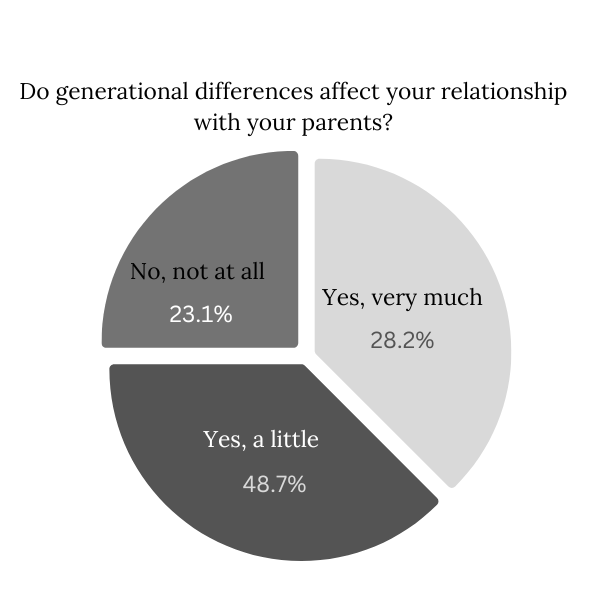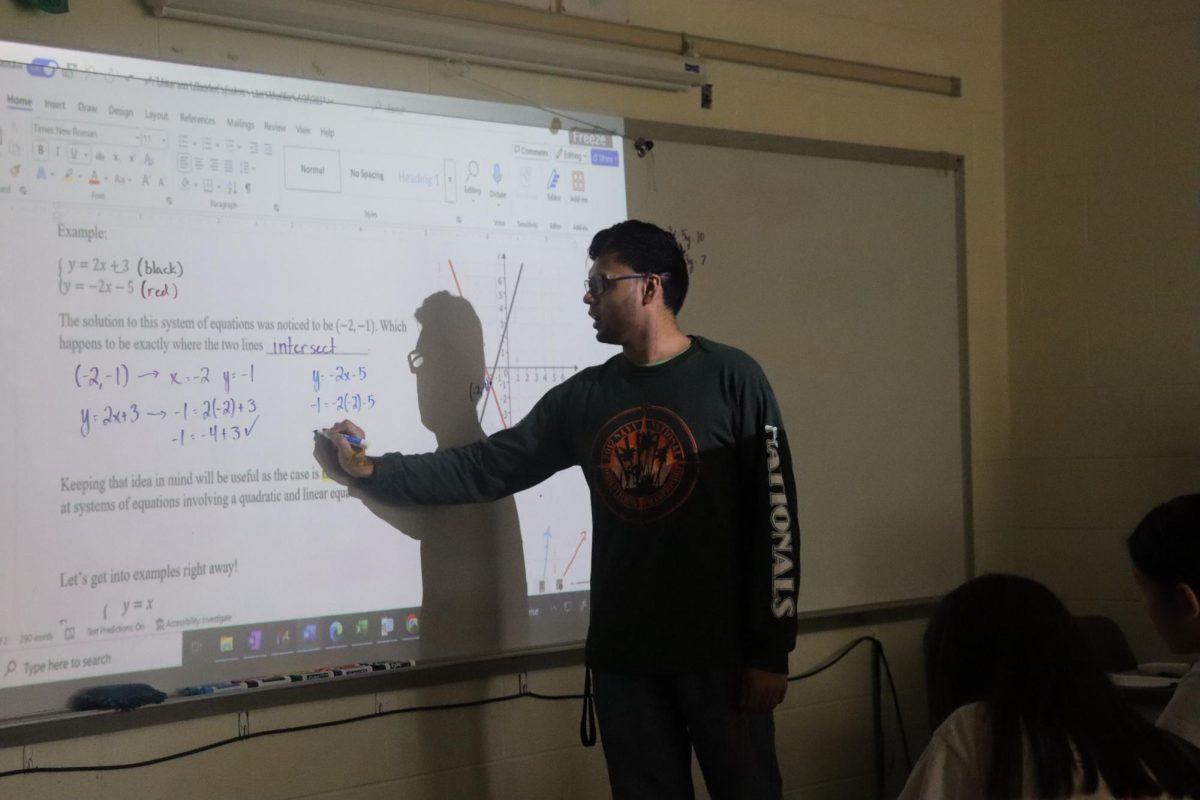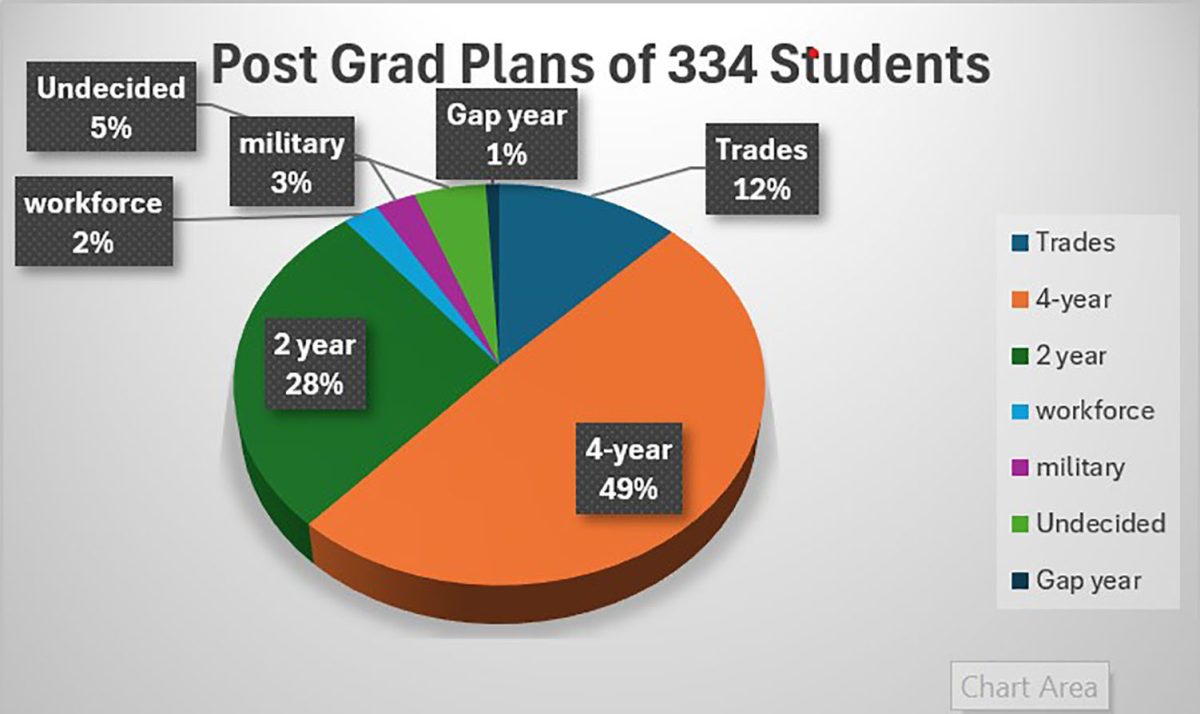
As years pass, so too does the environment that younger generations grow and live in. With the inevitable passage of time, however, come hardships that older generations must overcome to relate to their children, and vice versa.
Of 64 polled students, 59.4% believe that there is a gap in understanding between them and their parents, most often attributed to the topics of expectations, music, and clothing. Of those students, 79% agree that their relationship with their parents is affected by this gap.
“Parents think that they know everything because they went through high school, but it is not the same as they think it is,” Logan Fox, junior, said.
“It’s weird hearing about the different things they went through during their generation and the things us sophomores are going through right now in our generation,” Kyleigh Salerno, sophomore, said.
Due to differing opinions on these topics, students can feel isolated from their parents and may feel unable to express their thoughts around their parents. Some parents are also unwilling to listen to the views of younger generations, thus deepening this gap.
“Some kids feel their parents just ‘don’t get them’ and this can affect how you relate to each other,” Julie Godkin, social worker, said. “Communication and listening to the other person is a big part of improving these differences.”
However, according to Psychology Today, these differences between generations are not all negative; in fact, they are a sign of adolescents detaching from childhood and gaining their own independence.
“Understanding is needed from everyone involved in this worldwide debate and realizing that every generation, modern or ancient, had its values or flaws,” Jakob Karanosky, sophomore, said.
In order to understand the experiences of prior generations, both sides need to first realize that there is no such thing as a “best decade” or “superior generation”. Making an effort to listen to the views of others and set aside biases is the first step to lessening generational gaps.
“By having conversations your parents might think about similar situations they experienced with their parents,” Godkin said. “Be patient; know it might take time for others to see things from your perspective.”






